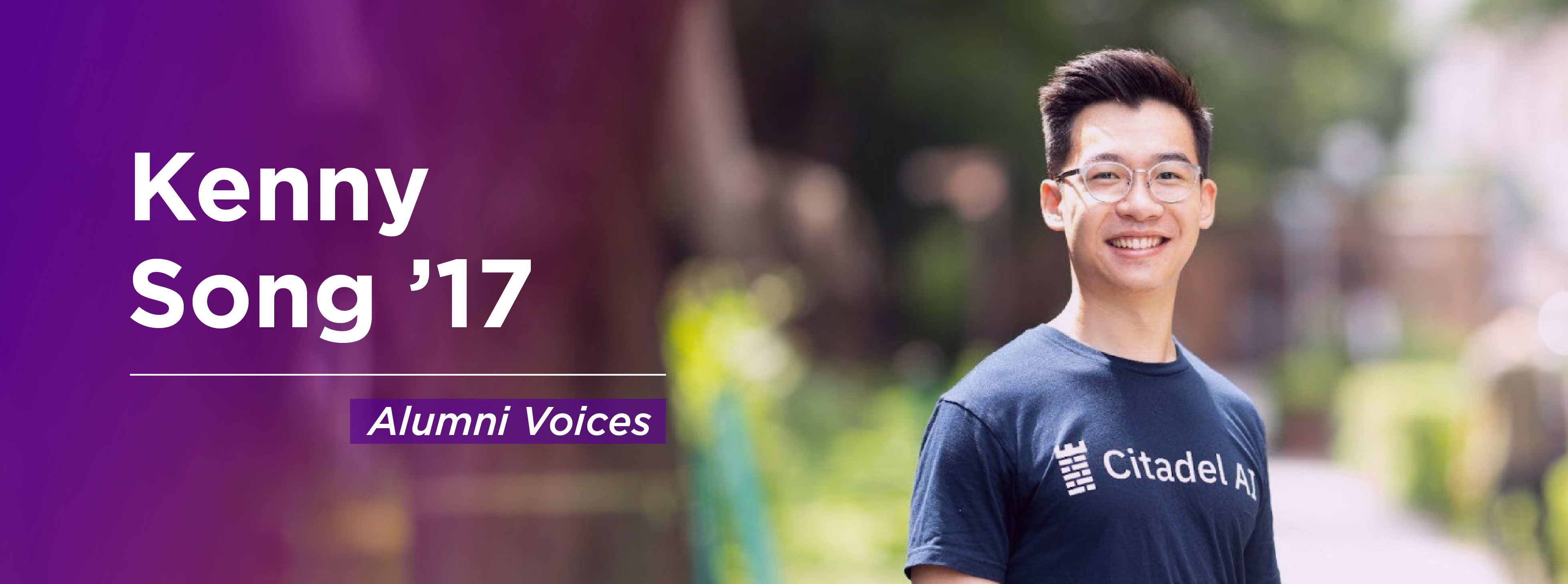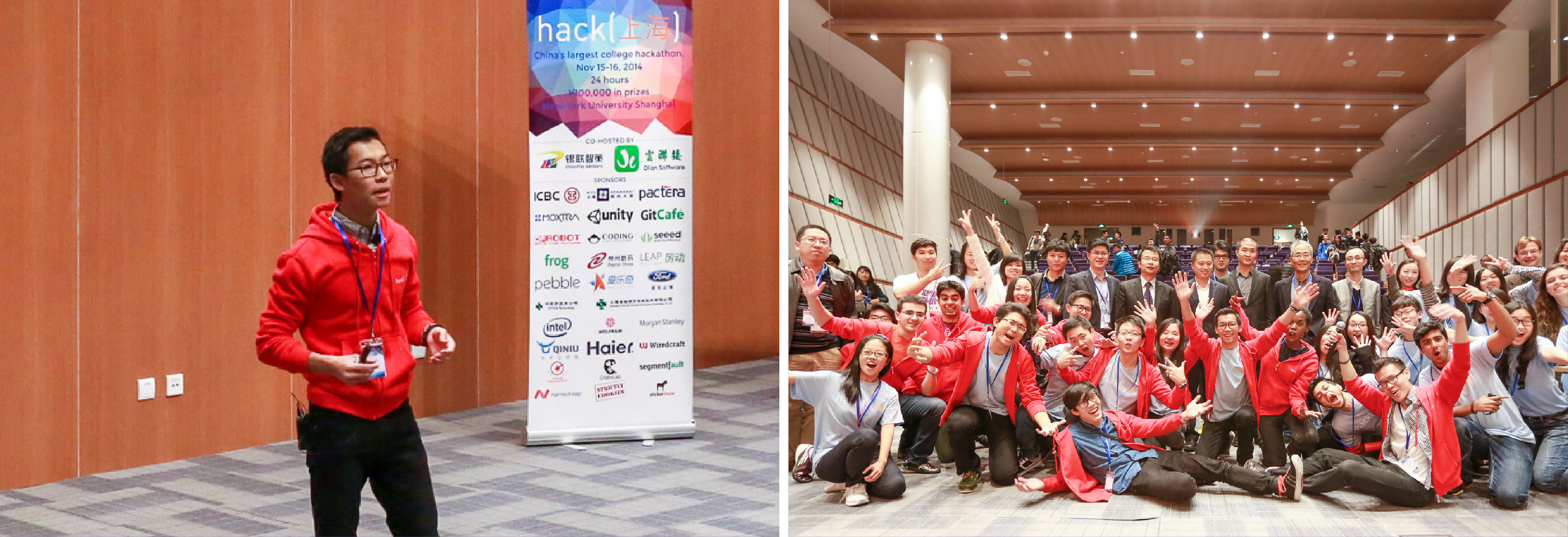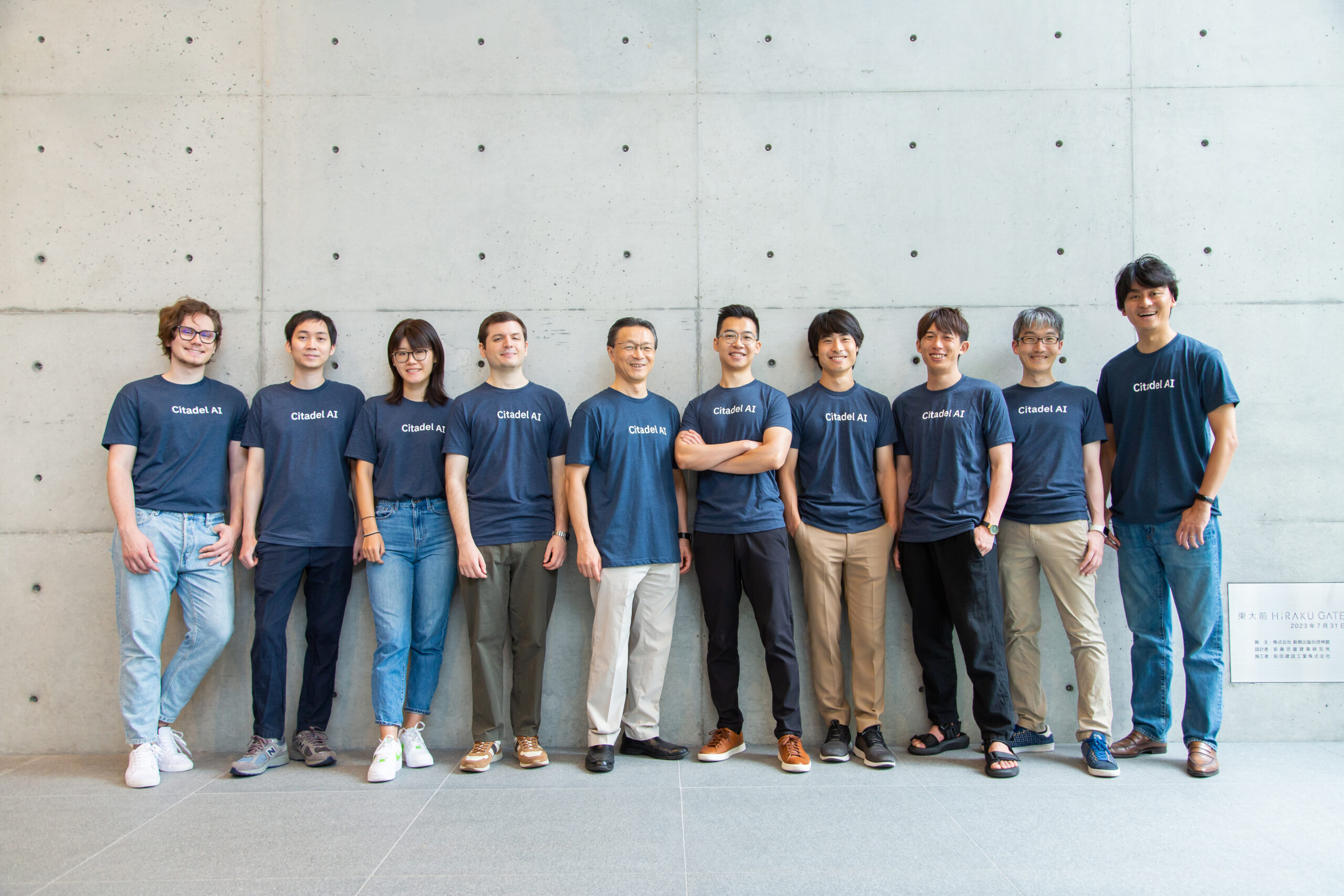
Kenny Song, Co-Founder & CTO, Citadel AI
Hometown: New Jersey, USA
Major: Math and Computer Science
From attending a brand-new university to starting his own company, Kenny Song ’17 has always sought out start-up opportunities. Now the co-founder and CTO of Citadel AI, Song shares his insights on how students can make the most out of their university experience and transfer those lessons to a meaningful career.
Why did you decide to join NYU Shanghai’s inaugural class of students?
What I was looking for was high risk, but also high reward. Ever since high school, I've been interested in startups, [so] I kind of also saw this as sort of a startup experience – starting up a university and brand new university community from scratch. It'd be really hard to experience [this] if you went to a university that’s been around for 100 years, where you're just following traditions and structures that are already set up. You learn a lot and get opportunities that you wouldn't otherwise have, but it definitely may not appeal to everyone. NYU Shanghai was a pretty unique experience, [and] I felt that the other students [who] chose to go to NYU Shanghai were interesting and ambitious people.
Any pioneering Class of 2017 moments you’re especially proud of?
I was involved in Student Government during my first year, and one of the things we did was write the Student Government constitution. At other universities, you wouldn't be able to do that! When we were sophomores in 2014, we hosted the largest hackathon in China at that point, called HackShanghai. We brought 250 college students from around the world to do a hackathon over a weekend. It was all student-organized, and we were able to raise a bunch of funding from external sponsors like ICBC and Goldman Sachs. HackShanghai went on for another few years, even after I left.

Left: Song speaking at NYU Shanghai's first hackathon in 2014. Right: Song and his hackathon team.
How did your academic life prepare you for your career path?
Doing a math and computer science double major was useful for learning how to think. It was rigorous, analytical, and logical, making it the perfect training for working in the tech industry and being an engineer. [After graduation] I moved back to the US, and I worked at Google for about three years in California. Because I had that [college] internship experience at Google, it was fairly straightforward to apply to the full-time job as well. I was a product manager on the search team. We were trying to build new features for Google Search to improve the experience for product and shopping-related queries. Then I moved to Japan, which is where I live right now. I did grad school here for about a year, and then I left and then started a company.
Why Japan?
Moving from the US to Japan felt very natural to me, based on my college experience. I missed living in Asia and Shanghai. There’s basically nowhere in the US that compares, except maybe Manhattan. I ended up getting a scholarship from the education ministry in Japan. I used that scholarship to study in Tokyo for a year when I first moved to Japan in 2020.
One of the reasons I went to grad school was to have some time to figure out what I needed to work on and also to meet potential co-founders for my startup. My co-founder is also an alumni of the same university.

Song (center right) with his team at Citadel AI.
Tell us about your start-up, Citadel AI.
We help AI engineers test their systems and monitor their systems. For example, say you're a medical company and you're creating an AI system that makes predictions on x-ray scans. You want to make sure that your AI system is actually reliable and not biased against people of different genders, ages, or races. You want to make sure it works in different hospitals with different scanning conditions, different qualities of images, and the like. We help these engineering teams actually test their models more effectively. We have a hybrid working style right now where we come to the office twice a week, and then we work remotely three times a week. That's worked out pretty well; we're not fully remote and distributed around the world. It’s hard to predict the future, but the best case scenario is we'll be really successful and grow to have offices not just in Japan, but all around the world.
What traits are essential to founding a successful startup?
Being a start-up co-founder requires some level of empathy and open-mindedness. Coming up with new solutions to old or new problems requires being open-minded. You need to understand where your customers are and empathize with them, understanding what problems they actually have, which can sometimes be surprisingly hard. The day-to-day work of a startup is not just about writing code and developing software, but it involves talking to customers, recruiting new employees, raising money, and being able to have fun while doing all of these different things.
How did your NYU Shanghai experience inform your start-up career?
Through my NYU Shanghai experience, I’ve lived in different places, experienced different cultures, and have witnessed different values people have and different ways they do things —not only in their personal lives, but in the way that they succeed and run businesses.
Knowing that there's not just one right way to do things has helped a lot. It helps if you really know what you want to do, and you can sort of follow your internal motivations. If you can do that, the place that you live doesn't really affect the work that you do that much. As long as you follow what you want to do, you can almost do it anywhere.
Being in Shanghai with people from so many different countries and then spending a year and a half in Abu Dhabi – it really changed my perception of the world and my perception of other people. It made the world seem much more accessible and much smaller in a sense.
It gave me confidence. Experiencing and doing things that I might not have felt ready for, for example, writing a constitution in my first year and being the president of the student government, or running a hackathon. Having those opportunities gave me a lot of confidence.
What advice do you have for current students?
It helps a lot if you spend your college time really figuring out what you enjoy doing and what you feel passion for. After you leave college, it's actually very hard to do that once you have a full-time job, especially if it's a full-time job that you're not that excited about. It's not impossible, but it's more difficult to make a career transition and try something new. So if you're in college, and you don't know what you like doing, try to do as many things as possible and find something that really interests and excites you.

